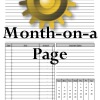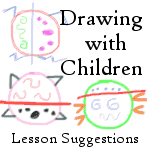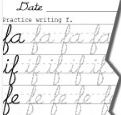Conjugation of Drive
I put this together for my daughter many years ago.
| Present - drive | Past - drove | Past Participle - driven | |
| ACTIVE VOICE | |||
| Simple: I/you/we/they/he/she/it | Present : drive, drives | Past : drove | Future : will drive |
| Perfect I/you/we/they/he/she/it | Present : have driven, has driven | Past : had driven | Future : will have driven |
| Progressive I/you/we/they/he/she/it (uses be verbs, uses "-ing") |
Present : am driving, are driving, is driving | Past : were driving, was driving | Future : will be driving |
| Perfect Progressive (uses been, "-ing") I/you/we/they/he/she/it | Present : has been driving, have been driving | Past : had been driving | Future : will have been driving |
| Notes on active
voice: perfect version adds the auxiliary verbs- had, has, have (will have) progressive adds the "be" verbs - is, am, are, was, were, be (will be) perfect progressive is like perfect with "been" added to all examples *** shall sometimes replaces will |
|||
| Nonfinite forms: | The Infinitive: to drive | The Present Participle: driving | |
| PASSIVE VOICE - uses the past participle form and uses "be" verbs | |||
| Simple I/you/we/they/he/she/it | Present : is driven, are driven, am driven | Past : was driven, were driven | Future : will be driven |
| Perfect I/you/we/they/he/she/it | Present : have been driven, has been driven | Past : had been driven | Future : will have been driven |
| Progressive I/you/we/they/he/she/it (uses "being") |
Present : is being driven, are being driven, am being driven | Past : were being driven, was being driven | Future : will be being driven |
| Perfect Progressive (uses "been, being") I/you/we/they/he/she/it | Present : has been being driven, have been being driven | Past : had been being driven | Future : will have been being driven |
| Notes: The passive voice
used "driven" in all examples The simple version used the "be verbs" is, am, are, was, were, be (will be) the perfect version added the "been" and used the auxiliary verbs, had, has, have (will have) the progressive version is like the simple with "being" added the prefect progressive is like perfect with "being" added More notes: (simple) Future tense uses " will" or " shall" (simple) Future perfect uses " will have" or " shall have" |
|||
| Be verbs: | |||
| Present: is, am, are, be (used with auxiliary will or shall to form future tense, -- shall be or will be) | Past: was, were | Past participle: been (used with auxiliaries to form-- present perfect tense: has been-, past perfect tense: had been- , future perfect tense: will have been- ) | Present participle: being |
Inflections indicates tense (and sometimes person and number) and the mood of a verb.
*Inflection
Change in the form of the word to show variation of meaning (as with inflections of number, comparison, and tense), or to show the relation of a word to another word (as with the inflections of case and person).
The inflection of substantives is called declension, that of adjectives and adverbs comparison, and that of verbs conjugation.
The various forms that a word receives in inflection are its inflectional forms e.g.:
love, loved, and loving are inflectional forms of the verb to love
man, man's, men, men's, are the inflectional forms of the noun man.
*Definition of inflection from College Handbook of Composition by Wooley and Scott, 1928.
Hello Visitor!
I am currently working on this website to add to its ginormousness. Thank you for visiting, and please subscribe yearly to access my many printable files! Donna Young
May 13, 2021

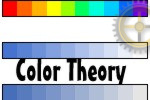 Color Theory Assignment Suggestions
Color Theory Assignment Suggestions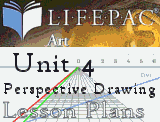


 Lesson Plans for LifePac Electives Art Unit 4
Lesson Plans for LifePac Electives Art Unit 4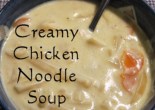 Creamy Chicken Noodle Soup
Creamy Chicken Noodle Soup
